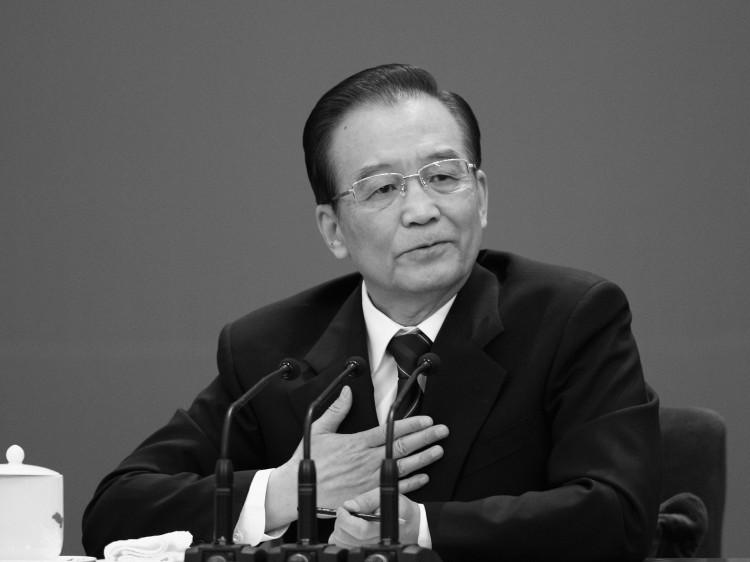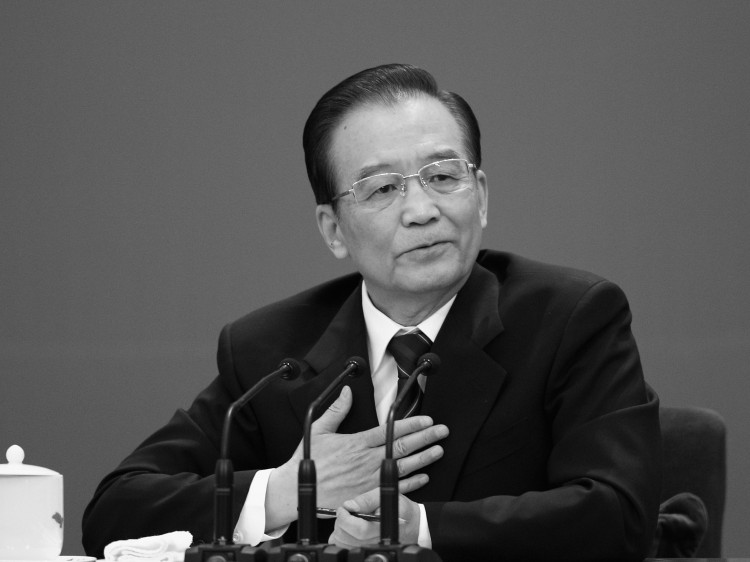A tug-of-war over free speech last week had China’s reform-talking Premier demanding more “truth telling,” while the Central Propaganda Department (CPD) issued directives to clamp down even harder on the press—all on the same day.
Last Friday, Chinese Premier Wen Jiabao emphasized the need for China’s leaders to “speak the truth and listen to the truth.”
“China’s leaders should keep an open mind to different views, and not simply disregard them as noise. Instead they should learn from these diverse opinions, particularly those that are critical in nature,” China National Radio quoted Wen saying on June 15.
Wen also pointed out that without democratic rule of law to restrain those in power, “someone could use the power they hold to violate or trample on the law.”
But on the very same day, the Central Propaganda Department (CPD), which is headed by propaganda chief Li Changchun, issued censorship directives to news agencies at all levels to publish reports highlighting the “great accomplishments” of the Chinese Communist Party (CCP) over the past 10 years, and to stop reporting any news that negatively reflects on the authorities, or risk facing harsh punishment.
The conflicting remarks have once again highlighted the differences between Wen’s reformist approach and the CPD’s media stranglehold.
Sarah Cook, senior research analyst for Freedom on the Net and East Asia at Freedom House, the U.S.-based democracy advocacy organization, emphasizes that these differences, however stark, should be considered within the context of the current regime in China.
“It’s not entirely new to hear high ranking Chinese officials talk about ‘democracy,’ ’truth,‘ ’oversight,‘ ’rule of law,'” she said.
“If Wen Jiabao and officials feel like the media should be able to speak the truth, there is layer upon layer of institution that needs to be dismantled, starting with CCP propaganda dept.”
The Beijing Municipal Bureau of Press and Publication announced on June 15 that news agencies at all levels cannot report any negative news without the permission of the CPD, nor can they report news stories outside of their provinces, according to Boxun, a dissident Chinese language news website outside China.
The announcement also said that if any journalist is caught reporting on something outside of his or her province, they must be reported to the CPD and the Bureau of Press and Publication, and the journalist’s license may then be revoked. Furthermore, major breaking news stories can only be reported with the permission of the CPD.
“In practice, if journalists uncover torture or corruption, or issues that don’t make the CCP look good, those journalists will encounter censorship, articles will not be published, and the journalists can be fired, even jailed,” Cook said.
A journalist working for the Guangdong-based Southern Media Group said the news agency is being closely watched by the CPD, with journalists receiving warnings not to do cross-province reporting. “In serious cases, the head of the news agency could even be forced to resign,” he said.
Click www.ept.ms/ccp-crisis to read about the most recent developments in the ongoing crisis within the Chinese communist regime. In this special topic, we provide readers with the necessary context to understand the situation. Get the RSS feed. Get the new interactive Timeline of Events. Who are the Major Players? ![]()
According to a report by China Digital Times (CDT), the CPD issued specific instructions for two recent major news events: the death of Chinese June 4 activist Li Wangyang and the arrest of eight Chinese nationals by Indian police on June 12. All of China’s media outlets are to refrain from reporting, conducting interviews, commenting on the events, or reproducing foreign media reports.
Other news stories—including the reports of heavy metals found in milk powder, and of local authorities forcing a woman to abort her seven-month pregnancy—had other restrictions placed on them. For these stories only Xinhua News Agency wire copy can be used. “Hyping, exaggerating, and providing in-house reporting or commentaries” were explicitly disallowed, the CDT report said.
Zhang Sutian, a current affairs commentator living outside China, told The Epoch Times that if the Chinese regime allowed China to enjoy a free press, its propaganda system used to brainwash the people would stop working completely, and the CCP would collapse overnight in the same way the Berlin Wall collapsed overnight. “That is the reason behind the CCP’s tight grip on its propaganda machine,” Zhang said.
When Chongqing’s former top cop, Wang Lijun, fled for his life to the U.S. Consulate in Chengdu on Feb. 6, he set in motion a political storm that has not subsided. The battle behind the scenes turns on what stance officials take toward the persecution of Falun Gong. The faction with bloody hands—the officials former CCP head Jiang Zemin promoted in order to carry out the persecution—is seeking to avoid accountability for their crimes and to continue the campaign. Other officials are refusing any longer to participate in the persecution. Events present a clear choice to the officials and citizens of China, as well as people around the world: either support or oppose the persecution of Falun Gong. History will record the choice each person makes.
Read the original Chinese article.
The Epoch Times publishes in 35 countries and in 19 languages. Subscribe to our e-newsletter.






